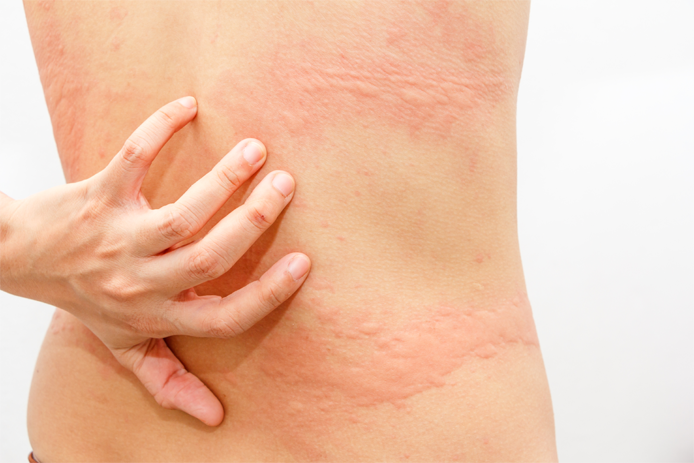What is Allergy?
Adult allergies fall under immunology and allergy specialty, which is currently a relatively underserved field in Hong Kong.
Allergy is an exaggerated immune response triggered when the body encounters environmental allergens, leading to hypersensitivity reactions such as allergic rhinitis, food allergies, urticaria, eczema/atopic dermatitis, and asthma. Severe reactions may cause angioedema or anaphylaxis, potentially life-threatening.
Hypersensitivity reactions are classified into four types:
- Type I: Immediate hypersensitivity (IgE-mediated), common in hay fever, urticaria, eczema, asthma, conjunctivitis.
- Type II: Antibody-dependent cytotoxic reactions.
- Type III: Immune complex-mediated reactions.
- Type IV: Delayed-type hypersensitivity, such as contact dermatitis.
Diagnosis of Type I allergy involves:
- Skin prick testing
- Blood tests for IgE levels
Blood tests can identify approximately 200 food and environmental allergens causing Type I reactions. However, a high IgE level does not necessarily mean a true allergy; clinical correlation is essential.
If an allergen is confirmed, avoidance is the primary strategy. Immunotherapy (allergy shots) can help build tolerance over time, reducing symptoms of allergic rhinitis, asthma, eczema, and urticaria.
Please consult a healthcare professional for personalized diagnosis and management.

